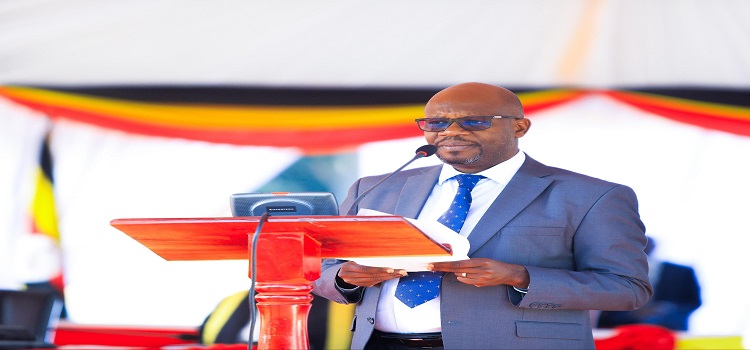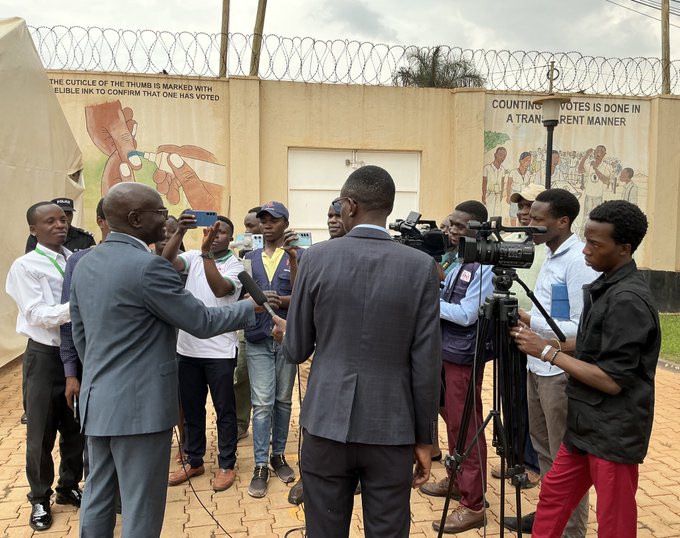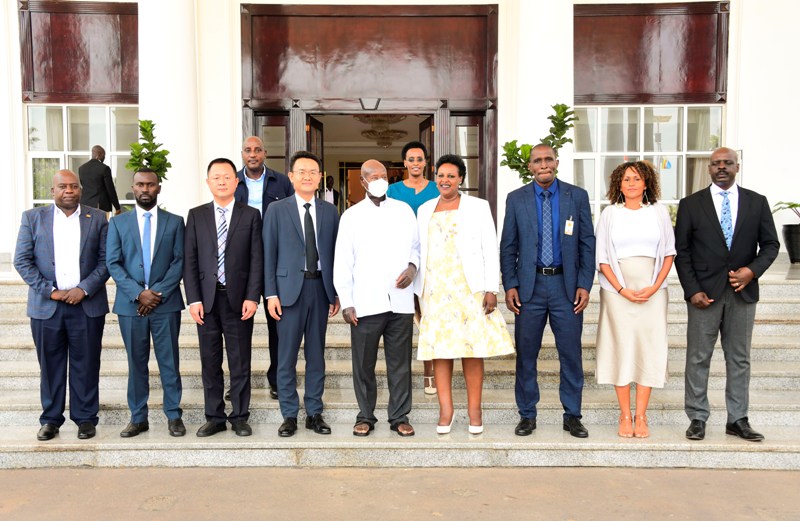New bill seeks to democratize opposition leadership in parliament
The bill is expected to spark significant debate, as it challenges the current structure, which gives the opposition party with the greatest numerical strength the exclusive right to choose the LOP.

In a bid to reshape the leadership structure within opposition parties, Mityana South Member of Parliament, Richard Lumu, has tabled the long-anticipated Administration of Parliament (Amendment) Bill, 2024.
This bill aims to democratize the selection of the Leader of Opposition (LOP) by ensuring that all opposition MPs in Parliament are involved in the process, rather than limiting the choice to the party with the largest numbers.
Lumu, a member of the Democratic Party (DP), introduced the bill during a plenary session presided over by Deputy Speaker Thomas Tayebwa. The bill is expected to spark significant debate, as it challenges the current structure, which gives the opposition party with the greatest numerical strength the exclusive right to choose the LOP.
“It’s a matter of fairness and effective representation,” Lumu argued. He emphasized that the LOP oversees all opposition members, regardless of party affiliation.
“Leaving the selection solely to the largest opposition party disregards the interests of smaller parties and weakens the collective voice of the opposition,” he added.
Currently, the Administration of Parliament Act, Cap. 272 only specifies that the LOP is chosen by the largest opposition party but is silent on how inclusive this process should be for other opposition parties. Lumu’s bill proposes that all opposition MPs, regardless of party size, should have a say in selecting their leader.
The bill also calls for broader consultation across opposition ranks, particularly regarding the appointment of key positions like chairpersons of parliamentary committees and shadow cabinet members.
“The LOP should consult all opposition parties represented in Parliament, ensuring a more unified and democratic process,” Lumu stated.
Opposition MPs Weigh In
The bill has garnered mixed reactions from opposition lawmakers. Maracha County MP Denis Oguzu Lee and Aringa South County MP Odria Alioni expressed frustrations with delays in processing their own motions, which seek similar amendments to the Administration of Parliament Act.
Both MPs are advocating for more inclusive processes in opposition leadership, echoing Lumu’s sentiments.
“We need these reforms to ensure all voices within the opposition are heard,” Oguzu Lee commented. “We’re tired of being sidelined just because our parties are smaller.
On the other hand, some opposition members from larger parties have expressed reservations, arguing that the current system ensures a stable and structured opposition. “Changing this process could lead to fragmentation within the opposition,” one MP noted anonymously. “We need a strong, united front, and sometimes that requires tough decisions from the leading opposition party.”
A new era for 0pposition leadership?
The bill’s proposal for the election of the LOP is just one aspect of the broader reforms it seeks. It also outlines new grounds for the LOP’s removal from office and mandates that the shadow cabinet must be approved by opposition MPs rather than being a unilateral appointment by the LOP.
These measures aim to strengthen accountability and ensure broader consultation among opposition ranks.
Deputy Speaker Tayebwa assured MPs that other related motions will be scheduled for first reading promptly. Meanwhile, the Administration of Parliament (Amendment) Bill, 2024 has been referred to the Committee on Legal and Parliamentary Affairs for further review.
For many in Parliament, this bill marks a potential turning point in how the opposition operates within Uganda’s legislative framework. If passed, it could empower smaller parties, fostering a more inclusive approach to leadership selection and opposition strategy.
“We must ensure that all opposition voices are heard, not just the loudest ones,” Lumu concluded.
As the bill heads to committee review, the future of opposition leadership in Uganda is poised for a possible transformation that could redefine parliamentary dynamics.







